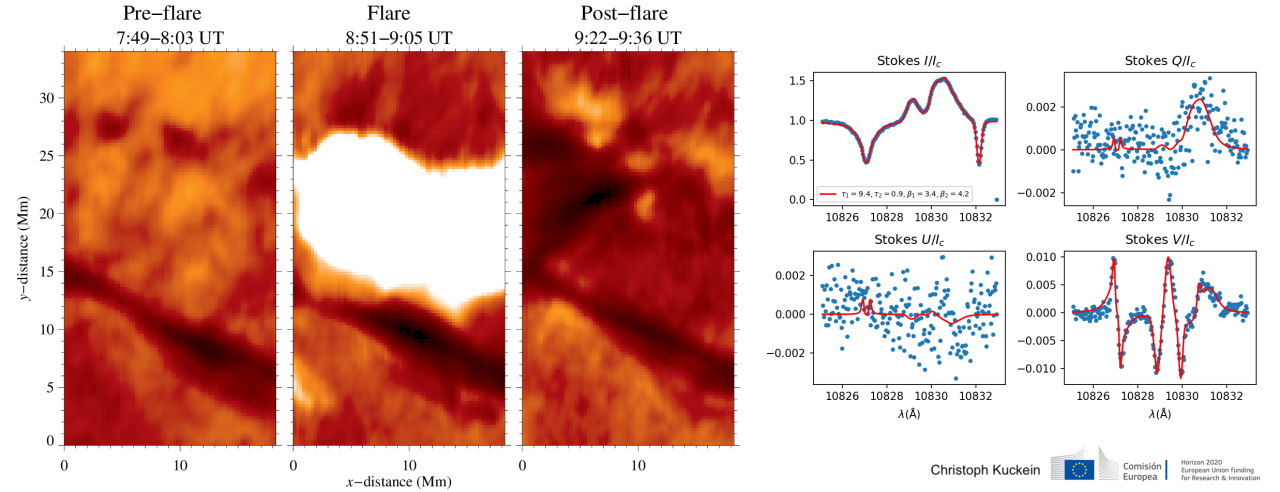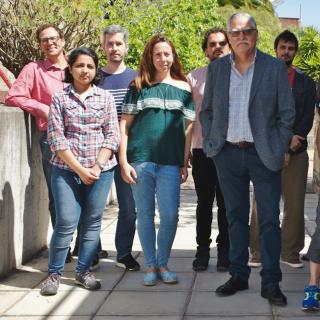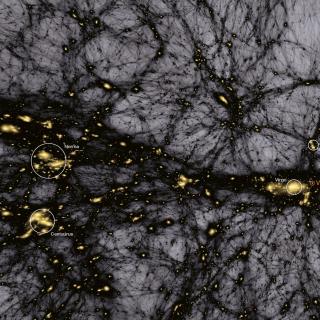General
This project aims to study the variations of the solar magnetic field in flares, the most energetic events in our solar system. Flares accelerate charged particles into space, which may adversely affect satellites and Earth’s technology. Despite their clear importance for today’s technology, the timing and positioning when flares occur are so far unpredictable. Changes in the solar magnetic field topology are known to be the causes of flares, but their physics is not understood in detail. Past studies have shown prominent changes in the magnetic field in the photosphere during flares. But higher in the atmosphere, in the chromosphere, studies are scarce because ground-based telescopes with special instrumentation and capabilities are needed. No space mission has been or is being planned with capabilities for those chromospheric magnetic measurements.
The most suitable spectral range to study the mid-upper chromosphere is the He I 1083.0 nm triplet and Ca II 854.2 nm line, and this project has access to two unique data sets of high-energetic flares in this spectral region. Since there are no diagnostic tools for this prominent spectral triplet in flares, the first goal is to upgrade an existing tool (spectral-line inversion code) to be able to interpret flare signals. The code will be made freely available for the benefit of the scientific community so that it can be used to analyze future flare observations in this wavelength range. The second aim is to use the upgraded tool to infer for the first time the evolution of the magnetic field vector in the two abovementioned data sets. The results will provide thresholds for the shear/ twist of the field lines that lead to the analyzed flares. The results will have a deep impact on flare models, future predictors, and space weather.





